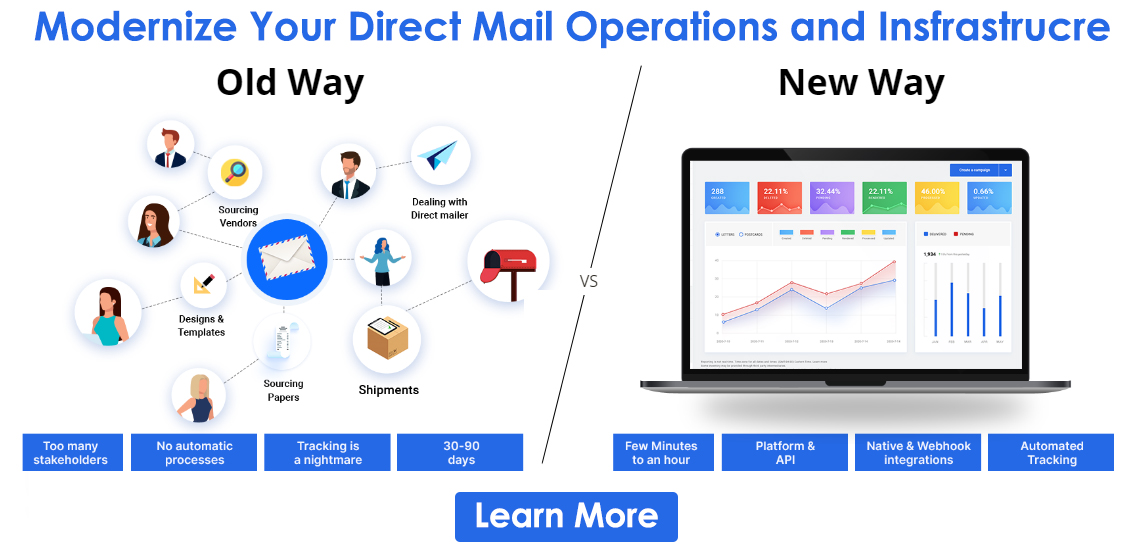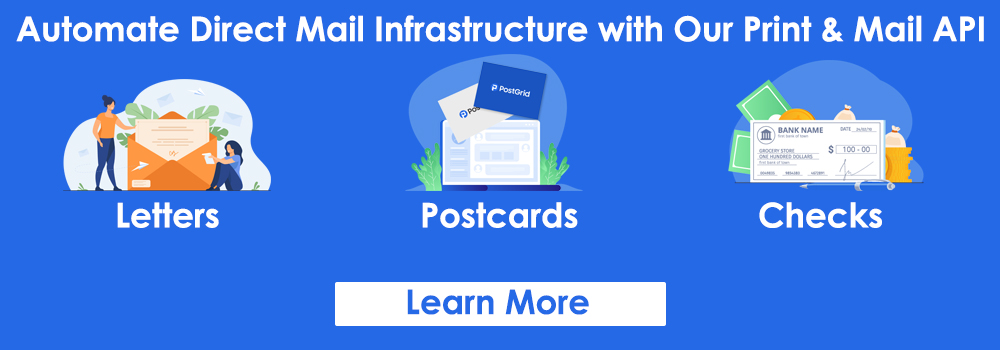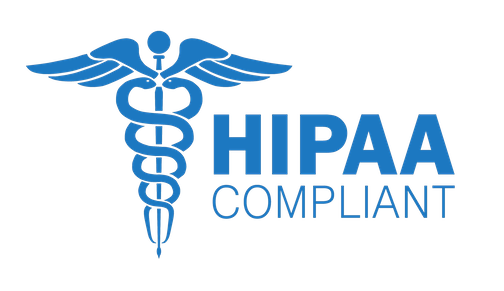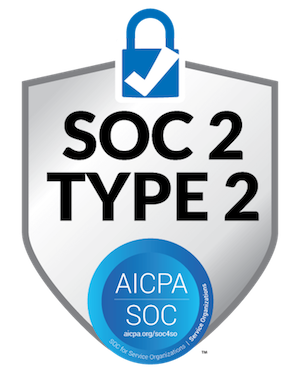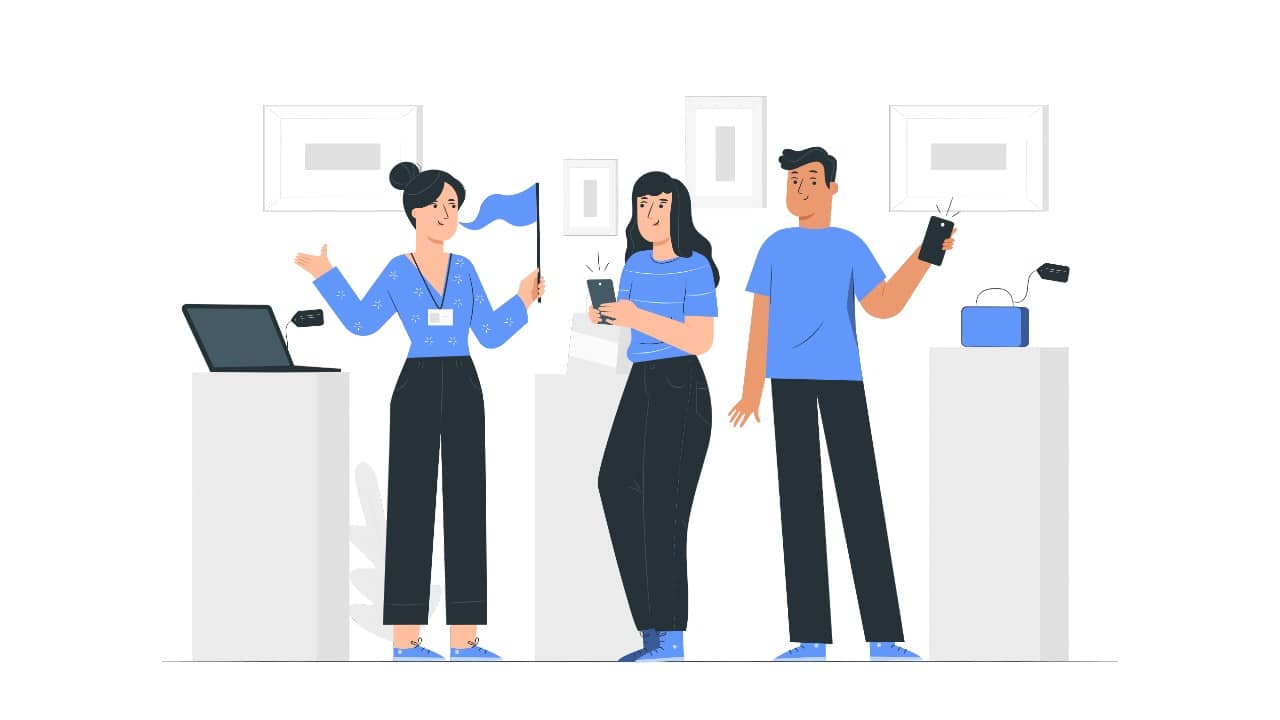
Steps to Create the Best Hospitality Marketing Strategy to Convert Leads
The world was finally ready to travel once the pandemic restrictions were over. The COVID-19 pandemic was a significant setback for the hospitality industry. Almost every small and big player experienced huge losses. This sector is very diverse, with multiple businesses competing, such as hotels, resorts, restaurants, lodges, homestays, etc.
These businesses try their best to stay relevant in the information age. Travelers have countless choices with more innovation in transportation and technology. We can almost travel to any part of the world with minimum discomfort.

Canada is a vast country with an area of 9.985 million km². People from all over the world come to our country to experience the beautiful landscapes and picturesque places. Hospitality businesses require effective marketing strategies to attract and retain customers.
Why do you need a robust hospitality marketing plan?
What are the current trends in hospitality and marketing?
How can you distinguish yourself from the competitive hospitality domain?
The thought of answering these questions could be a little intimidating at first. However, don’t worry because this is the perfect blog to learn everything about hospitality marketing.
What is Hospitality Marketing for Travel Agencies and Hotels?
It refers to the process of advertising hospitality businesses to gain more customers. These strategies can apply to multiple industries, including hotels, restaurants, resorts, homestays, restaurants, travel companies, etc.
However, a hospitality marketing strategy ultimately depends on the business and its target audience. Many companies prefer using multichannel advertising to maximize their reach and engagement.
These are some of the most common approaches in hospitality advertising;
- Social media campaigns
- Email marketing
- Video Marketing
- Search engine optimization
- Paid ads
- Influencer marketing
Canadian Hospitality Industry and Latest Trends at a Glance
Experts predict the Canadian hospitality sector will have a value of USD 22.86 billion in 2025. This growth will touch 27.08 billion by 2029 at a CAGR of 3.45%. We are witnessing an astronomical growth after the COVID-19 pandemic.
However, this growth also comes with a highly competitive market. Generic hospitality marketing is ineffective in a market with competition and changing demands. The return of major annual events like the Grand Prix and the Osheaga Festival will also increase the demand.
What is the Importance of Hospitality Marketing for a Brand?
Every business wants to prioritize brand awareness, attracting new customers, and retaining existing ones. The hospitality sector is also not exceptional from this viewpoint. Many marketers work hard to ensure people are aware of their existence and services.
They try to provide high-quality products or services to increase satisfaction rates and online reputation. It encourages people to come back and spread positive words about the company. Customer satisfaction is their number one priority in every hospitality marketing marketing plan. You can also encourage your guests with a strong brand image and online reputation.
The competition is high in the Canadian hospitality sector. If there is any wrong move, your customer will go to competitors for better options. Marketers often try to provide exclusive schemes to attract more people. It’s better to hire someone with a post-degree diploma in hospitality marketing and decent work experience.
For example, reduction in prices, free upgrades, two nights for the cost of one, etc. Customer loyalty cards also become handy when you are looking for long-term customers. The main idea is to engage customers as long as possible.
You can use different advertising media, such as TV ads, newspapers, direct mail, email, or social media. Hospitality marketing requires maximum exposure to generate qualified leads. Constant brand awareness and marketing play a crucial role in converting curiosity into a successful purchase.
Hospitality marketing campaigns alone could be inadequate. You also require solid and high-quality products and services. Consumer experience is everything in this industry.
Imagine you are booking a trip to Amsterdam from a travel company. This firm sends a pick-up in poor condition with uncomfortable seats. It will ruin your mood and trip experience. How would you rate this company for poor transportation?
People don’t like to adjust when they are spending with an expectancy of high-quality services. Product and service development is a paramount aspect of marketing.
Learn About the 7Ps of the Right Hospitality Marketing Strategies.
Many marketers use the marketing model for hotels. However, the 7 Ps of the marketing mix give us better clarity about hospitality marketing.
Product
A product refers to the actual product (food items) or services by a hotel brand. Experts refer to it as the core of a hospitality marketing strategy. We cannot neglect this aspect while preparing an advertising plan.
Place
Many misinterpret this as the physical location of the hotel. However, it refers to the available channels for booking. People must get sufficient options to make a reservation or plan a stay. It increases the possibility of getting more bookings from multiple sources.
Companies can expect higher spending or longer stays with targeted promotions on specific channels.
Price
Hospitality businesses charge people by day of the week, market segment, room types, seasonability, and market competition. They often provide exclusive discounts and promotions to attract more customers.
Promotion
Hospitality companies prefer using a blend of marketing activities to attract customers. Personalized experiences help them reach specific customer segments. The lead generation process also gets a boost from your marketing communications.
People
Hospitality brands give massive importance to staff training and professionalism for their products and services. A strict recruitment process is vital to make such trained professionals available. These people are at the forefront of your business.
They will represent all your values and ethics to customers. A hospitality firm cannot compromise with its workforce.
Process
Each hospitality brand has a different approach to providing products and services to its customers. The standard operating procedures (SOPs) can vary depending on the business type and target audience.
Physical Evidence
The Hospitality industry is entirely dependent on physical presence. It was the only reason behind the enormous losses during the COVID-19 era. Physical evidence highlights where customers and staff will interact.
It includes a hotel room layout, dining area, reception, etc. People prefer high-quality images and videos to learn about these experiences.
Must Learn Fundamentals of Hospitality and Marketing Trends
Successful hospitality marketing requires a combination of creativity, insights, and strategy to yield meaningful results. It lets you connect with the target audience smoothly. Hospitality brands create compelling narratives to relate with potential customers, highlighting the exceptional time waiting for them.
In-depth knowledge and skills in marketing and hospitality are mandatory in an industry with so many options.
4 Types of Market Segmentation in the Hospitality Industry
A better plan only begins by understanding the four types. They help marketers adopt innovative strategies to ensure a hotel’s reputation. It also convinces guests of an exceptional service.
Intangibility
Services are intangible in the hospitality sector. It means marketers are selling promises and experiences instead of physical products to consumers. They find it much easier to pitch these experiences with concrete imagery.
Imaginative storytelling lets potential customers imagine themselves enjoying your hotel’s experiences. Any marketer has a tough time conveying this message to the masses. Mastering this art means you will also outpace your competition by a vast margin.
For example, imagine how you will create a memorable experience for your guests. People remember experiences. It could be anything from welcome drinks, polite staff, decorative rooms, or special arrangements. Here are some more suggestions;
Virtual Reality Tours
You can offer VR tours of your hotel rooms, resorts, amenities, and unique experiences. It provides them with a clear perspective about what to anticipate from your business. Hospitality marketing is all about creating a bold impression that encourages people to book.
Use Past Testimonials
People often want to listen from first-hand experience instead of marketing materials. Past guest reviews can have a significant impact on influencing people to visualize your hotel’s offerings. It also builds emotional connections, which is often missing from generic marketing plans.
Develop Customizable Stay Packages
Every guest has different expectations and tastes from a hotel. For example, wellness retreats, cultural tours, camping experiences, gourmet dining experiences, etc. You need to segment the guests to create accurate personas and packages.
Including these unique experiences in your marketing materials can increase the value and uniqueness of your services. People with different interests will have the motivation to book.
Inseparability
It refers to the services you produce and consume simultaneously in the hospitality sector. This factor highlights the importance of every guest interaction. A single customer experience can directly influence perceptions and future booking decisions.
The services and their delivery are both vital in the service industry. For example, your restaurant features an exceptional dining experience with delicious food. However, a rude and inattentive wait can ruin the entire meal.
Follow these ideas to master this factor of hospitality marketing;
- Every staff must clearly understand their roles and responsibilities. It is a vital prerequisite to ensure a delightful guest experience. Motivated employees can make real-time decisions to improve different experiences. Their contribution directly impacts the inseparability of service delivery and consumption.
- Successful firms gather guest feedback to make further improvements. There’s always some scope for betterment in any customer experience. Monitor review platforms like TripAdvisor or Google My Business to promptly respond to guest compliments and concerns. It shows your commitment to continuous improvement.
- Personalize guest experiences with customer relationship management (CRM) systems data. Insights from the CRM can help in drafting customized emails or direct mail. It creates a personal impression and enhances the overall experience.
Perishability
It refers to the fact that we cannot store unsold rooms or services for future sales. The revenue opportunity is gone every night a room remains unsold. Successful hotels use innovative yield management and dynamic pricing strategies to sell every room.
It is the perfect way to maximize occupancy and avoid revenue loss. Innovative hospitality marketing strategies suggest adjusting offers in real-time to meet market demand. However, you get the exact opposite situation during a limited-time accommodation.
There’s less need to promote or reduce prices during the holiday season. Here are some best practices for managing perishability in hospitality marketing;
- You can use revenue management software to adjust rates in real time. These tools consider the current demand, competition, and other market factors. It becomes easier to maximize occupancy and revenue by selling your rooms at the best possible rates.
- Provide special offers for last-minute bookings to sell unsold rooms. Hotels and resorts often launch package deals, discounted rates, or value-added services. It captures the attention of spontaneous travellers who are making last-minute plans.
- A loyalty program is another excellent idea to reward guests with exclusive offers redeemable perks. These programs can offer free nights, updates, or other services. It could be your perfect strategy to ensure repeat business and a loyal customer base.
Variability
Heterogeneity means that the regular standard and quality of hospitality services can differ from one experience to another. Every customer can have a different viewpoint on each experience. For example, adventurous people would love a camping experience, while couch potatoes will look for more convenience.
Consistency is the best formula for developing trust and loyalty. Hotel chains often follow strict protocols to maintain high service standards. They even monitor every guest encounter, from online bookings to the check-out experience.
This hospitality marketing approach fosters repeat business and positive reviews. People learn that you put consistent efforts into ensuring a delightful stay. It is essential to ensure that you deliver the promises you made before.
Here are some critical steps you can follow in your hospitality marketing strategy;
- Create a blueprint of all standard operating procedures (SOP) in your business. It should include everything from check-in to housekeeping to transportation. Maintain a standard across all your services and reduce variability.
- Regularly provide training to your staff about service standards. You can implement workshops or role-playing games to ensure consistency in the services. This approach motivates employees to act proactively and professionally.
- Enforce quality control checks of all services to avoid variability. Many hospitality firms have regular audits and mystery guest programs to discover areas for improvement. It ensures that every guest receives the same excellent and uniform service.
Top Hospitality Marketing Trends in 2025
Only expert marketers can keep up with hospitality marketing trends. However, we must understand their context and target before implementing them. Here are some relevant hospitality marketing trends in 2025;
Personalization Marketing for Hospitality Brands
Generic advertising campaigns never lead to successful conversions. There are tons of players in the market. Why would people choose you above others? What exceptional services are you providing?
Automation technology and data collection can let you deliver custom content for each customer group. Connect with them as individuals by using personalized hospitality marketing tactics. Companies often gather critical information from CRM systems, marketing automation software, mailing lists, etc.
Hotels and tour companies personalize their services via targeted emails and direct mail campaigns. It reaches and engages only the highly motivated customers. For example, a hotel group could target companies looking for business trips.
People also expect some level of personalization in every interaction. Implementing them suggests that you are putting effort into listening to their individual preferences. They give more attention to personalized service.
For example, personalized direct mail engages people on a personal level. You can add the recipient’s name, address, and other relevant information with automated direct mail campaigns.
Implement Artificial Intelligence to Enhance the Customer Experience.
2023 was the breakthrough year for AI. We saw the astronomical growth of generative AI and other technologies. Marketers also use AI to streamline processes and gather valuable insights. Most people use aggregator websites to book their hotel rooms.
However, some people might directly land on a hotel’s homepage and avoid booking. You can use robust chatbots with artificial intelligence to engage this audience. It also enables guests to place their room service requests from your AI-enabled website.
Here are some of the best methods to implement AI in hospitality marketing;
- Businesses can implement chatbots for customer service to reduce the workload on human staff. This approach also improves guest satisfaction.
- AI algorithms help offer tailored suggestions to users. This approach improves the guest experience by providing tailored services and activities. People also praise the stay and give it higher satisfaction.
- AI technology can predict and prevent equipment issues. Hotels and resorts can decrease downtime and maintenance costs by addressing problems before they affect guests.
People Love Voice Search
The next generation of Internet users prefers using voice search options to find something. Google’s voice assistant, Amazon’s Alexa, and Apple’s Siri are the dominant players in the market.
It brings a beautiful opportunity in hospitality marketing campaigns. Voice control and recognition technology is mainly popular with phones, tablets, and smartwatches. Hotel seekers can book rooms by just speaking to their device.
This adds convenience to the booking experience and removes the roadblock of manually adding information. Many hotel chains are investing in building smart apps that allow guests to control room functions from their voice.
They can manage lights, music, or temperature directly from their phones. Experts predict more hotels will invest in this trend as a part of their hospitality marketing efforts.
Highlight User-Generated Content
Online and end-users will create a lot of user-generated content. You can find them in various forms, including comments, videos, testimonials, blog posts, forums, and other social publications.
This content is a goldmine to lure other customers searching for genuine content about your hospitality business. New customers can learn how other guests perceive your accommodation and services.
The correct use of user-generated content helps boost brand awareness. It will also give you more room bookings. Businesses can strategically ask their guests to share their experiences on social media or review sites.
Many brands like to create branded hashtags, run contests, or create media opportunities. For example, a restaurant business can encourage people to take pictures while dining and post them on Instagram using a specific hashtag.
Experiment with Short-Form Video Content
These videos are the most noticeable hospitality marketing trend in recent years. People have a concise attention span, and these videos work flawlessly to convey a message. TikTok was the first platform to boast short videos with a duration of under one minute.
Facebook, YouTube, Twitter, and Instagram also came up with the same format. It is easy to understand and share short-form videos. They don’t take much data or time. Users can view them instantly on their devices without getting distracted.
Hospitality marketing professionals can take this opportunity to highlight their key features and brand values. Short videos can also give a quick tour of their accommodation options. Many marketers encourage people to take actions, such as making a booking, following social media, or visiting a webpage.
Provide Better, Valuable Bookings and Flexible Cancellations
People often have unpredictable schedules and itineraries. They want flexible booking and cancellation options because they might change their mind. Many businesses had to re-align and focus on what makes their hospitality company unique.
People seek unique value while making reservations. You can highlight the location, customer reviews, hotel/restaurant’s design, bar’s theme, or other facilities. Unique selling propositions make it easier to sell your services based on value.
Many businesses focus on competing on pricing. However, anyone can challenge them with attractive pricing. Surprisingly, people are ready to pay more for assured quality, excellent service, or a unique experience.
Consider USPs you can add to your offering to make it stand out from competitors. A sensible cancellation policy is also vital to let customers re-book with minimum issues.
Short-notice cancellations provide peace of mind that they can book in advance without risking money.
Utilize the Power of Data Analytics to Understand Trends
Do you want to learn the current marketing trends in real time? Data analytics could be your best friend for hospitality marketing. Many marketers use analytics tools to understand how hospitality management can affect customer behaviour.
Your website analytics and booking data can let you pinpoint trends. Data and clear evidence provide complete information about the ideal demographics for your business. Geographical data is also necessary to understand how customers behave in real-time.
Hospitality marketing is incomplete without a clear understanding of the current market trends. It lets you learn which market segments are growing.
Rely on Video Marketing with the Latest Trends
Travel companies and hotels use video marketing to engage their target market. They post engaging videos on YouTube, Instagram, Facebook, and Snapchat.
It is very challenging to capture your audience’s attention in the hospitality industry through written content. Easily digestible videos about your hotel or resort can gain instant attention. For example, you can use a travel video maker to create high-quality videos showcasing how guests relax and use your hotel’s facilities.
Remember, these videos must be of high quality to attract customers. You can also include a motivating and relaxing soundtrack to make your videos more enticing.
A hospitality marketing agency can create beautiful videos with exceptional effects and content. 360-degree videos are also getting popular in the hospitality industry. It gives the best opportunity to render fully immersive experiences.
Use Chatbots to Improve Customer Satisfaction and Booking Experience
Chatbots improve the customer experience in several stages of their journey. Modern customers look for instant solutions while interacting with these businesses. These bots give rapid responses instead of waiting for customer representatives.
An intelligent chatbot can answer diverse questions and support multiple languages. This technology is handy in hospitality marketing during the booking stage and supports their stay at the accommodation. Chatbots are unique in creating excellent up-selling and cross-selling opportunities.
Introduce Augmented Reality in Your Hospitality Marketing
We already saw how AR could be revolutionary with its application in Apple’s Vision Pro headset. This technology opens a whole new dimension to one’s perception of their physical surroundings.
Hospitality marketing professionals can use AR to change the way their customers perceive the environment. For example, many hotel owners sell rooms by promoting features via AR.
A whole new world is there to entertain your guests with immersive AR environments. Guests get proper virtual depictions of your accommodations and services. Businesses in the hospitality domain can use this technology to innovate experiences.
Make this feature available on your website or mobile apps.
Marketing Agencies Recommend Remarketing
It refers to targeting potential customers who are showing interest in your website or services. Re-engaging people is a brilliant strategy to generate highly-qualified leads. You can provide additional discounts to these prospects for successful conversions.
Google Analytics is a valuable tool to segment users by demographics or interests. Many marketers prefer this method to learn about people showing interest in your website or services.
Travel Agencies Should Consider Influencer Marketing
These days, social media influencers are earning thousands of dollars with a single collaboration. Brands rush to find the most influential people to promote their products and services.
Influencer hospitality marketing is a new version of traditional word-of-mouth advertising. Businesses can use it to increase brand awareness and generate direct bookings.
This strategy is ideal for attracting a larger audience and attracting more customers. Influencers build trust and credibility for hospitality brands through engaging videos and other content.
They can promote the most authentic content about the guest experience at your hotel. The campaigns don’t need to be brand-oriented. Instead, they can boast about the experience via strong social media engagement.
Storytelling is the Art of Hospitality Marketers
Hospitality marketing uses storytelling as a part of their advertising campaigns. It allows customers to build personal connections with the hotel, destination, history, and philosophy.
You can gather feedback from your guests, business partners, and employees to enrich the experience. This information is useful to convey stories and connect ahead.
Many companies are capitalizing on ecotourism trends to highlight local conservation. Your business can go beyond providing an excellent guest experience. Ensure the potential customers know about your efforts.
Sometimes, the location of your business can be the main advantage. You can create exciting stories revolving around the area in your hospitality marketing campaign. Many companies follow this strategy to attract potential tourists.
Invest in Search Engine Optimization (SEO)
Most people will search on the web to find accommodation options. However, they will only notice your company if it is visible on the first page of the search results.
How can you ensure your website is on the first page? Hospitality marketers use Search Engine Optimization (SEO) techniques to optimize their websites for different search engines. Your website must be on the first page of search results.
A marketing team needs to use keywords to increase your website’s relevance. It gives you more exposure to potential customers looking for relevant information. SEO uses different methods to improve your rankings and reach on search engines. You can also invest in paid search to get instant results, or learn from the website traffic
Launch Lead Generation Campaigns with Digital Marketing
Learning about your target audience is necessary to focus on your hospitality marketing strategy. Lead generation is a critical aspect of your advertising plan. It allows you to target guests who are showing interest in your services.
There are exceptional lead-generation opportunities on aggregator websites. A targeted marketing campaign gives you a multitude of methods. Tourism and hospitality companies implement different lead-generation strategies to convert prospects into paying customers.
Social Media is a Vital Component of Digital Marketing
Social media platforms give hospitality marketing professionals an enormous ground to engage an audience. The majority of customers use social media platforms to consume content.
With the rising popularity of short cinematic films specifically related to tourism, you must have a strong online presence on social media.
Hire a professional who can manage multiple social media accounts with ease. You can also use social media management tools to automate campaigns.
It is also a necessary strategy to answer customer concerns and questions. The demographic information from different platforms is a goldmine of data to tailor your marketing efforts.
Develop a Mobile-Friendly Website for a Superior Customer Experience
When was the last time you searched for a business on your computer? Most people use their smartphones to open a business website. A mobile-optimized website is mandatory in 2025 to reach potential customers.
Customers will research different locations and hospitality options before making a booking. Invest in a mobile-optimized website with decent performance that works across all devices. Customers also expect a website without any lags or stutters.
Only a professional can help you build a high-quality website. Your website is the digital front of your business. Don’t compromise the first interaction with the potential guests.
A website lets you showcase the atmosphere and services you offer to guests. Content marketing helps implement creativity and cast a vast network of backlinks.
Send Marketing Emails
A well-timed email campaign is often the number one tool for lead generation. You can include exciting pictures of your accommodation and destination to inspire people to book a trip. Many hotels and travel agencies use email newsletters to keep motivating people to consider booking.
Create gated content to gather attention and grow your email list. A hospitality marketing agency will provide professional emails with astonishing graphics and photos to collect subscribers.
Direct Mail is a Powerful Marketing and Communication Tool
How many marketing emails do you receive every day? Most of them go into the spam folder or remain unopened. It is a massive problem with hospitality marketing emails.
Direct mail communication is still relevant in the information age. However, traditional methods are becoming obsolete. We need direct mail automation tools to streamline hospitality marketing workflows. It is more presentable, professional, and successful than regular marketing emails.
PostGrid print and mail API is a remarkable automated solution for sending personalized letters, postcards, and self-mailers at any scale. It saves you the time and effort of managing a manual mailroom.
Final Words
Hospitality marketing is getting more complex with new trends, demands, and stiff competition in Canada. However, intelligent marketers implement multichannel marketing techniques to attract and engage customers. Different digital and offline methods give them higher reach and better conversion rates than traditional methods.
Sign up now to transform your hospitality marketing strategy with direct mail automation.


